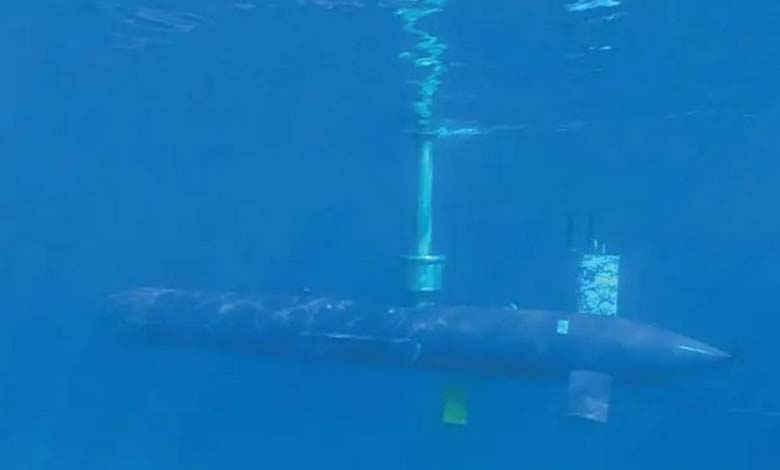The “Blue Whale”: An Autonomous Submarine Protecting Cables in the Baltic Sea

The North Atlantic Treaty Organization (NATO) deployed the “Blue Whale” following a series of recent attacks targeting vital undersea cables in the Baltic Sea.
-
Iran and Russia: A ‘Fragile’ Partnership at Risk of the ‘Wedge of Discord’
-
Russia and Ukraine: Will the Third Winter Melt the “Ice of War”?
Autonomous German submarines of the “Blue Whale” model are patrolling the Baltic Sea to prevent potential sabotage of key cables, suspected to be orchestrated by Russia and China. These attacks aim to disrupt communications and critical infrastructure in Europe and Asia, reflecting the increasing use of hybrid warfare, according to the British newspaper The Telegraph.
The Commander of the German Navy, Jan Christian Kaack, stated that the submarine will counter “sophisticated weapons from potential adversaries, including some weapons that are extremely difficult to defend against.”
-
Report: ISIS without land but it adapts and its threats persist
-
After America: Is it Time to Transform NATO into a European Organization?
Missions and Equipment
The giant autonomous submarine “Blue Whale,” measuring 36 feet (approximately 11 meters), patrols European waters to conduct surveillance operations in the depths of the Baltic Sea.
The “Blue Whale” boasts advanced capabilities, including detecting and tracking suspicious vessels as well as mines linked to foreign interventions.
Designed by the Israeli defense company Elta, the submarine weighs 5.5 tons and can move at a speed of 8 miles per hour underwater to track its targets. It can also dive to a depth of 984 feet.
-
Washington Tests Military Capabilities Amid Escalation Between Israel and Iran
-
New Tough Stances – The European Union deports illegal migrants to their countries
Elta highlights its ability to “enhance naval operations with unprecedented levels of stealth and data precision.” The collected data is transmitted to naval officers onshore through a synthetic aperture sonar system.
The “Blue Whale” can capture high-resolution images of the seabed and any suspicious objects or vessels. According to The Telegraph, the submarine is believed to remain submerged for up to 30 days, making it ideal for long-term deep-water missions.
The German Navy conducted the first launch tests of the “Blue Whale” last December, according to Maritime Executive magazine.
-
Human Rights Watch: A setback for human rights in Turkey and the kidnapping of members of the Gülen movement in the world
-
The Dilemma of Ukraine’s “New Brigades”: A Strategy Caught in the Web of Failure
Johannes Peters, an expert at the Institute for Security Policy at Kiel University, told the German magazine Der Spiegel that “autonomous submarines like the Blue Whale will allow the German Navy to take a significant step forward in monitoring the Baltic Sea and detecting submarines without relying on extremely costly manned systems.”
Concerns over threats to critical infrastructure, such as undersea cables, have grown, making autonomous submarines like the “Blue Whale” a key tool for defending European maritime security.












